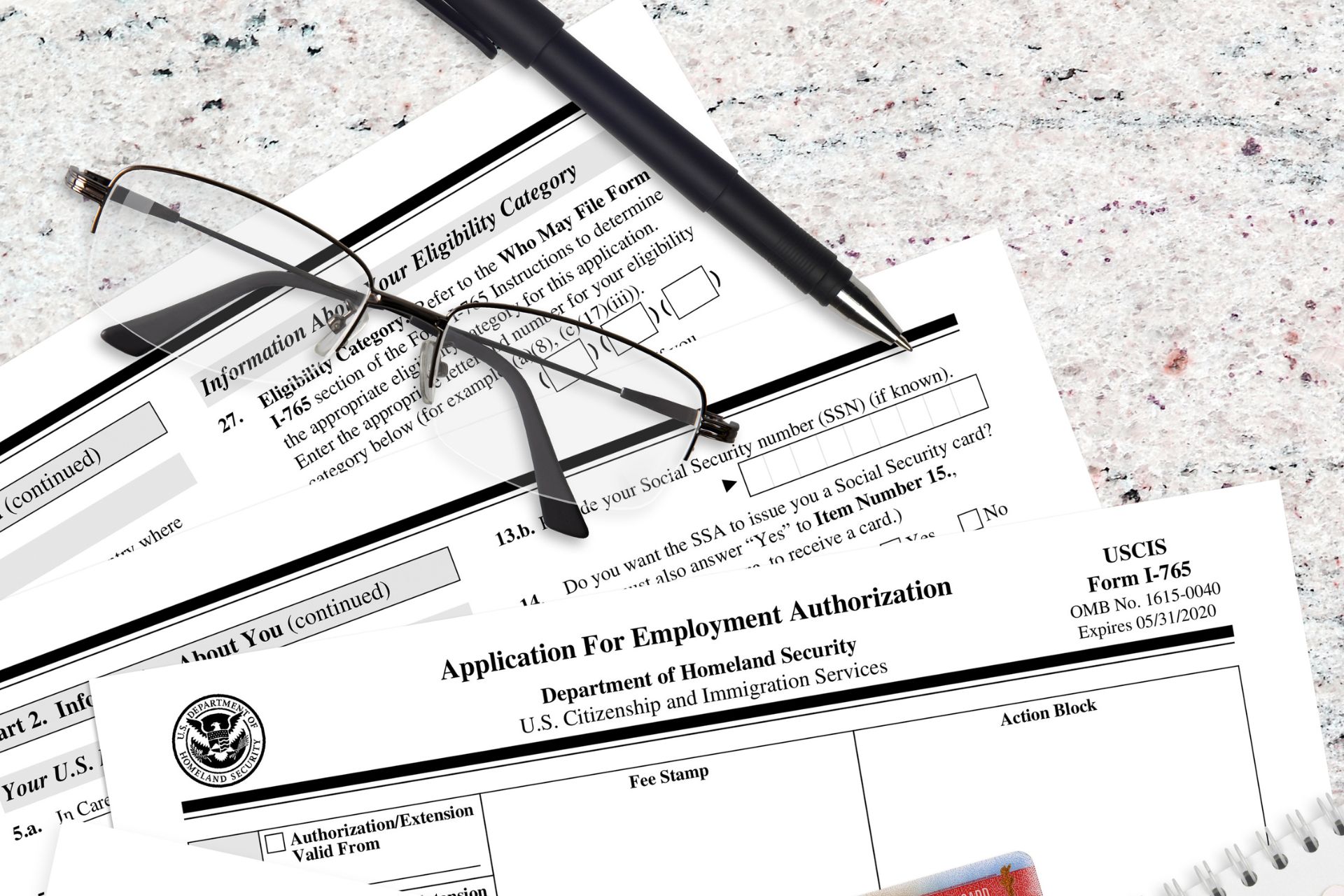Some holders of Employment Authorization Documents (EAD) with pending renewal applications are eligible for an automatic extension of their EAD’s validity, according to the U.S. Citizenship and Immigration Services (USCIS). This automatic extension applies to individuals who have filed Form I-765, the Application for Employment Authorization, and those who have either received or applied for Temporary Protected Status (TPS) or asylum.
Typically, USCIS grants an extension period of up to 180 days beyond the EAD’s expiration date. However, in a temporary final rule announced last year, USCIS extended the automatic extension period for EADs from 180 days to 540 days. It’s important to note that after the first 540-day extension, the original 180-day extension period will be reinstated for individuals who timely file Form I-765 EAD on or after October 27, 2023. This change to the 180-day extension is not retroactive, and existing 540-day automatic extensions remain valid.
For those benefitting from the increased 540-day automatic extension under the May 2022 rule, this extended period will end when a final decision is made on their application or when the extension expires, depending on which comes first. USCIS is currently evaluating the need for new regulatory actions that could offer additional automatic extensions.
To address the backlog in Form I-765 processing, USCIS is now offering a five-year EAD validity period for certain individuals. This extended validity period applies to both initial and renewal applications approved on or after September 27, 2023. The beneficiaries of this extended validity include:
- Qualifying noncitizens with employment authorization based on their status or circumstances, such as refugees, individuals with approved asylum status, and those granted withholding of removal.
- Some noncitizens who are required to apply for employment authorization, including those seeking asylum, pursuing withholding of removal, suspension of deportation, cancellation of removal, or adjustment of status.
The extended EAD validity period for eligible individuals aims to significantly reduce the existing backlog. USCIS is actively working on reducing overall processing times through improved processes, increased staffing, and other measures.
If you have any questions or concerns about your EAD or any other immigration-related issues, please don’t hesitate to contact us. We are closely monitoring ongoing updates to U.S. immigration policy to ensure that our clients receive the most accurate advice tailored to their specific situation and stay with them every step of the way.

